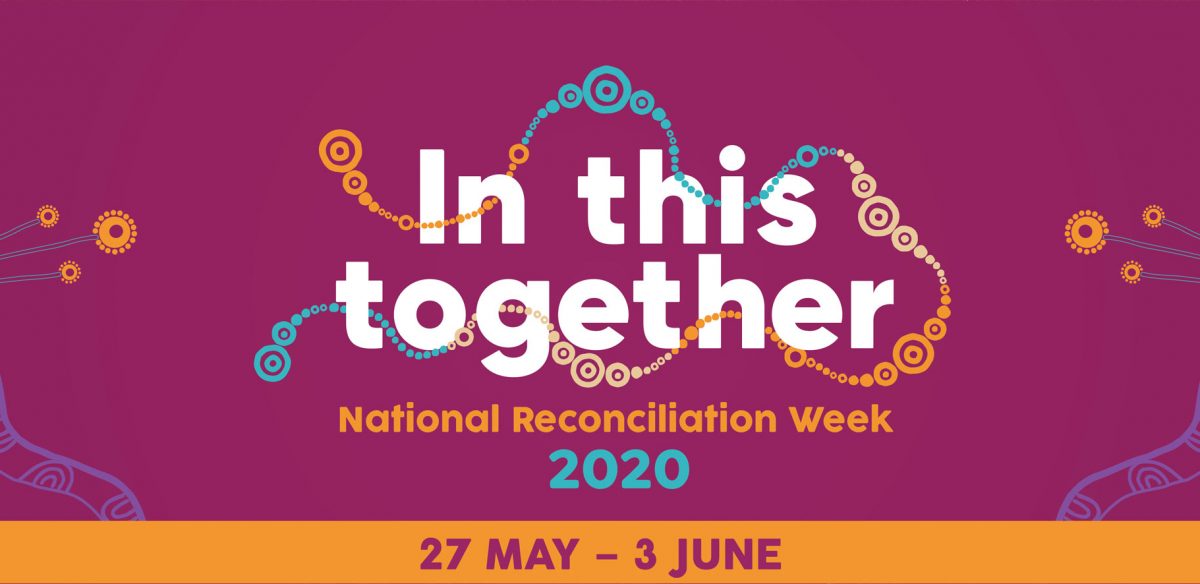Weekly Wrap

Welcome to week 7. Wominjeka!
This week, 27 May to 3 June, we celebrate the 2020 National Reconciliation Week.
We all have a role to play when it comes to reconciliation, and in playing our part we collectively build relationships and communities that value Aboriginal and Torres Strait Islander peoples, histories and cultures.
When we come together to build mutual respect and understanding, we shape a better future for all Australians. In 2020 Reconciliation Australia marks 20 years of operations. Much has happened since the early days of the people’s movement for reconciliation, including greater acknowledgement of Aboriginal and Torres Strait Islander rights to land and sea; understanding of the impact of government policies and frontier conflicts; and an embracing of stories of Indigenous success and contribution.
Reconciliation is an ongoing journey that reminds us that while generations of Australians have fought hard for meaningful change, future gains are likely to take just as much, if not more, effort. In a just, equitable and reconciled Australia, Aboriginal and Torres Strait Islander children will have the same life chances and choices as non-Indigenous children, and the length and quality of a person’s life will not be determined by their racial background. We know that Reconciliation Australia’s vision of reconciliation is based and measured on five dimensions: historical acceptance; race relations; equality and equity; institutional integrity and unity. These five dimensions do not exist in isolation, but are interrelated. Reconciliation cannot be seen as a single issue or agenda; the contemporary definition of reconciliation must weave all of these threads together. The College is discovering ways to embed the learning of this rich culture into our core curriculum.
As a further part of Forest Hill College’s commitment to reconciliation, all staff have bene trained in cultural sensitivity and awareness of Indigenous history and culture. The College also has a formal partnership with the Melbourne Indigenous Transition School.
MITS exists to create pathways to greater opportunity for Indigenous students from remote and regional communities, so that they may lead lives full of choice and opportunity. MITS provides young Indigenous people with a year-long program to enable them to transition into Melbourne schools while remaining culturally strong and connected with their families. Students are welcomed to Wurundjeri Country by a local elder and will meet the staff at the Richmond Football Club, where they will be schooled for Year 7. The students then transition into local Melbourne schools to complete their secondary education. They live with homestay families during their time at their local school. Currently Forest Hill College is proud to be the only State school that has a partnership with MITS. We have enrolled five students from MITS and in 2021 will be enrolling three more. To learn more about the Melbourne Indigenous Transition School, please click here .If you are interested in becoming a homestay family, please email me to gain a greater understanding of the rewards of being a homestay family, in what is a fully funded program via Abstudy, and what is required of homestay families.

